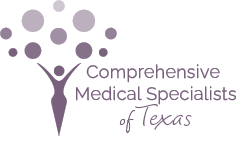Just as you likely had a number of questions regarding menopausal hot flashes, it’s normal to have additional concerns regarding your menopause transition. Most notably, recent research has been exploring the connections between menopause, depression and increased risk of heart disease.
To put your mind at ease, we explored the possible correlation. Read on to learn more.

Depression and Menopause
Many women may not experience depression during the menopause transition. However, due to hormonal changes that occur during the menopause transition, women are at a higher risk for depression. So if you do experience menopausal depression, don’t worry, this change in your mood is natural.
According to a study published by the National Institutes of Health, during the menopause transition your estrogen levels fluctuate, resulting in an increased likelihood of developing mood disorders such as depression. Also, common menopausal symptoms such as hot flashes and disruptive sleep combine to hinder your quality of life and thus may be contributing to menopausal depression.
Heart Health and Menopause
Just as research has discovered a connection between depression and menopause, it has also linked menopause to various forms of vascular dysfunction, which may include heart disease or risk factors for Cardiovascular Disease (CVD), such as vascular aging (the process during which your arteries harden). Because of the changes in your hormone levels during the menopause transition, the physical and mental side effects of menopause, changes in your blood pressure, and insulin resistance, your risk of vascular dysfunctions and, in turn, CVD, do increase during menopause.
Moreover, further research has examined the effects of hormone levels on vascular health. By studying both the hormone levels throughout the menstrual cycle as well as arterial properties, the research concluded that hormonal levels do affect our heart health and our risk for CVD.
Depression, Heart Health and Menopause
So while you are making all of these connections, it’s natural to link menopausal depression and the risk of vascular dysfunction.
Currently, however, based on the research published by the National Institutes of Health, while the increased potential of heart disease may be linked to a number of severe menopausal symptoms, there is no perceived link to depression. Rather, the study suggests that instead of having a causal relationship, it’s more likely that heart disease and depression emerge for similar reasons, the fluctuations in hormones during menopause.
Treatment to Improve Heart Health During Menopause
If you are still worried about the effect menopause can have on your heart health, there are treatments that research has shown can have positive effects on the heart when administered during menopause transition. Specifically, Hormone Replacement Therapy (HRT), medication that contains female hormones, may help reduce the likelihood of cardiac-related events or death during menopause. This form of treatment proves most effective if you are in the younger age bracket for menopause when you receive it.
Specifically, Practice-Happiness recommends BioTe® hormone replacement pellets to treat for HRT. As a form of HRT, BioTe® not only has the potential to reduce your risk of CVD, it has also proven to improve women’s moods.
Why Choose Dr. Natalie Drake
As a certified medical provider of this medication, Dr. Natalie Drake treats many women with BioTe® for the symptoms of menopause, including depression and potentially decreasing heart health. She is a recognized OBGYN and leader for women’s health issues in the U.S. and Houston, Texas. Both Dr. Drake and her husband, gynecologic oncologist, Dr. Rich Drake, were associated with the Cleveland Clinic for years prior to relocating their practices to The Woodlands, Texas.
If you are experiencing depression, vascular aging and other menopause symptoms, we are here to help restore a more normal quality of life and get you back to a healthier lifestyle.
Contact our office at (281) 203-5115 to schedule your appointment to get your health under control.
